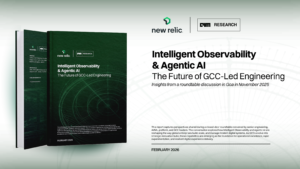In a groundbreaking move for the field of neurology, Piramidal, a startup from Y Combinator’s Winter 2024 batch, has secured $6 million in seed funding to develop a pioneering foundation model that interprets complex brainwave patterns. Co-founded by Dimitris Fotis Sakellariou and Kris Pahuja, the company aims to significantly enhance the accuracy and speed of electroencephalogram (EEG) analysis, a critical tool in diagnosing and managing neurological disorders.
The Challenge of EEG Analysis
EEG technology, despite being a staple in hospitals worldwide, is fraught with challenges. Currently, EEG brainwaves are mapped and analyzed by neurologists—a process that is not only time-consuming but also prone to human error. In fact, studies have shown that EEG interpretations can be incorrect up to 30% of the time. This issue is exacerbated by the global shortage of neurologists, particularly in the United States, where the demand for neurological expertise far outstrips supply.
The complexity of brainwave patterns and the variability in EEG machines and setups across different hospitals further complicate the interpretation process. Each EEG machine might have a different number of electrodes placed at different locations on the scalp, leading to inconsistencies in the data collected. This makes it difficult to develop a standardized approach to EEG analysis.
Piramidal’s Vision
Piramidal is named after pyramidal neurons, the principal neurons in the brain’s cerebral cortex that play a key role in cognitive function. The startup’s mission is to tackle the inherent challenges of EEG analysis through advanced time-series models capable of detecting and understanding “brain language.” Their foundation model is designed to quickly and accurately interpret EEG data, identifying critical issues such as seizures, brain bleeding, and inflammation—conditions that require immediate medical intervention.
The technology Piramidal is developing holds the potential to transform neurological diagnostics. By leveraging AI, their model can provide real-time analysis of brainwaves, offering faster and more reliable diagnoses. This not only helps in reducing the burden on neurologists but also ensures that patients receive timely and accurate treatment, potentially saving lives.
How the Foundation Model Works
Piramidal’s foundation model is built on the principles of deep learning, a subset of machine learning that excels in processing time-series data like EEG signals. Unlike traditional EEG analysis, which requires human interpretation of complex waveforms, Piramidal’s model is trained to recognize patterns and anomalies in brainwaves automatically.
The model operates by first being trained on a vast dataset of EEG recordings from various sources. These datasets include both normal and abnormal brainwave patterns, allowing the model to learn the differences between healthy and pathological states. Once trained, the model can analyze new EEG data in real-time, flagging any irregularities that may indicate a neurological disorder.
One of the key advantages of Piramidal’s approach is its ability to harmonize data from different EEG machines. By aggregating and standardizing data from various sources, the model can overcome the inconsistencies that plague traditional EEG analysis. This makes it a versatile tool that can be deployed in any hospital, regardless of the specific EEG equipment they use.
Piloting the Technology
Piramidal is currently refining its model for use in neuro-intensive care units (ICUs) and is set to pilot its technology in two prestigious hospitals in England—King’s College and Saint Thomas. These pilots will test the model’s ability to function in real-world clinical environments, where it will be integrated into the existing patient monitoring systems.
The goal of these pilots is to demonstrate the model’s effectiveness in identifying critical neurological conditions. If successful, the technology could be rolled out to other hospitals, paving the way for widespread adoption. The pilots will also provide valuable data that will be used to further improve the model’s accuracy and reliability.
Addressing the Data Challenge
One of the biggest hurdles in developing AI models for medical applications is access to high-quality, annotated data. Piramidal has tackled this challenge by aggregating EEG datasets from multiple sources, including open-source repositories and their partner hospitals. This approach not only provides a diverse training set for the model but also helps to ensure that the model can generalize well to different patient populations and EEG setups.
Moreover, the ongoing pilots in England will generate thousands of hours of additional EEG data, which will be used to fine-tune the model further. This continuous learning process is crucial for the development of an AI model that can match, and eventually surpass, human experts in EEG interpretation.
Potential Impact on Neurological Diagnostics
The implications of Piramidal’s technology are far-reaching. By automating the analysis of EEG data, the company’s model could significantly reduce the workload on neurologists, allowing them to focus on more complex cases. Additionally, the model’s ability to detect subtle patterns in brainwaves that might be missed by human observers could lead to earlier diagnoses of conditions like Parkinson’s and Alzheimer’s disease.
As wireless EEG sensors become more common, Piramidal’s technology could enable continuous, real-time monitoring of brain health. This would be particularly valuable in settings like neuro ICUs, where patients are at high risk of complications and need constant monitoring. Real-time analysis could alert medical staff to potential issues before they become critical, improving patient outcomes and reducing the length of hospital stays.
Furthermore, the use of AI in EEG analysis could lower healthcare costs by reducing the need for repeat tests and shortening the time to diagnosis. This is particularly important in the context of the current healthcare system, where cost efficiency is a major concern.
The Road Ahead
Despite the promising potential of Piramidal’s technology, there are still challenges to overcome. One of the biggest is ensuring that the model can be seamlessly integrated into existing clinical workflows. Hospitals have established protocols for patient monitoring and diagnostics, and any new technology must fit within these frameworks to be adopted widely.
Another challenge is regulatory approval. AI models in healthcare are subject to stringent regulatory requirements to ensure patient safety. Piramidal will need to demonstrate not only the accuracy of its model but also its reliability and robustness in diverse clinical settings. This will likely involve extensive testing and validation, both in their current pilots and in future deployments.
Additionally, while the current focus is on EEG analysis, Piramidal’s technology has the potential to be applied to other types of brain imaging data, such as functional MRI (fMRI) and magnetoencephalography (MEG). Expanding into these areas could further enhance the company’s ability to detect and diagnose a wider range of neurological conditions.






